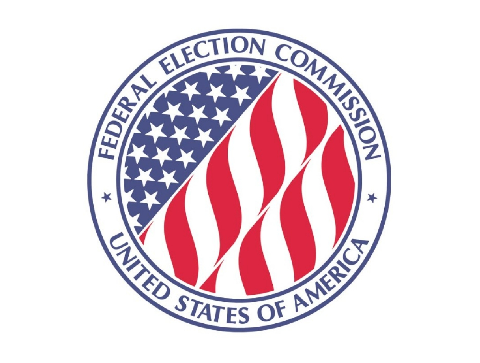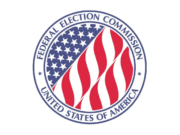PDF of petition available here
Federal Election Commission
Office of General Counsel
1050 First Street NE
Washington, D.C. 20463
Re: Petition for Rulemaking to Revise 11 C.F.R. § 100.52
Dear Commissioners:
Pursuant to 11 C.F.R. §§ 200.1-200.6, the Institute for Free Speech petitions the Federal Election Commission to conduct a rulemaking to amend the definition of “Contribution” at 11 C.F.R. § 100.52 in light of Citizens for Responsibility & Ethics in Washington v. Federal Election Commission (“CREW”), No. 16-259 (BAH) (D.D.C. Aug. 3, 2018). There, the district court adopted a broad reading of the contributions that must be reported pursuant to 52 U.S.C. § 30104(c). In particular, the court extended the scope of donations to nonprofit entities that may now be considered reportable contributions under the Federal Election Campaign Act (“FECA”), 52 U.S.C. §§ 30101-30146, to include certain funds given to organizations that, while not political committees, spend $250 in independent expenditures in a calendar year.
The court acknowledged that the statutory (and, by extension, regulatory) definition of contribution was unconstitutional without a limiting construction, and stated that such donations must be “earmarked for political purposes.”[1] As the Second Circuit has noted, however, even this phrase must be further limited to express advocacy to avoid unconstitutional ambiguity.[2]
The Commission has already been instructed to reevaluate its regulation dealing with reporting pursuant to 52 U.S.C. § 30104(c).[3] But the Commission should also conduct a rulemaking to clarify which donations are “contributions” as a general matter. Otherwise, its regulation will fail to accurately reflect the law, give needed guidance to non-profit groups and citizens, or protect those same groups and individuals from the threat of third party complaints.
A. Statutory Requirements
Section 30104(c)(1) states that “[e]very person (other than a political committee) who makes” total independent expenditures exceeding $250 during a calendar year “shall file a statement containing the information required [of political committees] under subsection (b)(3)(A) for all contributions received.”[4] Subsection (b)(3)(A) requires that the speaker identify any non-PACs who make a contribution to the reporting committee “during the reporting period” whose total contributions exceed $200 during the calendar year, along with the date and amount of the contributions.
The statute goes on to specify the information that must be included in an independent speaker’s filings. In addition to specific reporting requirements for recipients of disbursements and certification that independent expenditures were in fact independent of candidates,[5] the statements must “identif[y] each person who made a contribution in excess of $200 . . . which was made for the purpose of furthering an independent expenditure.”[6]
FECA broadly defines contributions as “anything of value made by any person for the purpose of influencing any election for Federal office.”[7] As the Buckley Court noted, when applied to the definitions of both “contributions” and “expenditures,” “the ambiguity of th[e] phrase [for the purpose of influencing] poses constitutional problems.”[8] Nonetheless, the Commission’s definitions still rely on this ambiguous terminology: “anything of value made by any person for the purpose of influencing any election for Federal office is a contribution.”[9]
B. Limits on Reporting under Buckley and the CREW Decision
On August 3, 2018, the United States District Court for the District of Columbia vacated the Commission’s regulation implementing 52 U.S.C. § 30104(c), holding that the regulation failed to implement the statute “in significant ways.”[10] In particular, the court held that the regulation impermissibly narrowed § 30104(c)(2)(C) when it required that speakers disclose only those donors who earmarked their contributions for a particular communication, rather than all donors who earmarked their contributions to support or oppose a particular candidate, regardless of the specific communication.[11]
In addition, and importantly for purposes of this petition, the court held that the regulation impermissibly narrowed the statute in failing to treat § 30104(c)(1) as a reporting requirement separate from the particular requirements at § 30104(c)(2)(C).[12] The district court further noted that there was no requirement that the disclosure under subsection (c)(1) “be earmarked for a specific or single political purpose so long as the purpose is in connection with a federal election,” such that the “disclosure requirement” is similar to that “applicable to political committees.”[13]
In remanding the complaint against Crossroads GPS to the Commission for reconsideration, the court implied that “the statutory plain text” was sufficient notice of the statute’s reporting requirements, as outlined by the court.[14]
Nevertheless, because of the latent ambiguities in the definition of contributions and the concomitant risk that broad interpretations of § 30104(c)—such as that urged in the lawsuit by Citizens for Responsibility and Ethics in Washington (“CREW”)—would chill speech, the court felt compelled to limit the statute’s reach.[15]
Because broad disclosure under subsection (c)(2)(C) “would not serve the purpose of . . . inform[ing] voters about the source of funds for a particular candidate,” any disclosure under that subsection must nonetheless “associat[e] each donor to an expenditure.”[16] That is, speakers must disclose only donors “who request that the money be used for independent expenditures,”[17] and then only when the donors intend that the money be used to “expressly advocate[] for or against the election of a particular candidate.”[18]
Similarly, the court held that the additional reporting requirement it imposed under subsection (c)(1) was limited by the Supreme Court’s Buckley decision. There, the Supreme Court held that the vagueness of the definitions underlying the terms “expenditures” and “contributions” “poses constitutional problems.”[19] To avoid infringing on speech that was not “advocacy of a political result,” the Court allowed broad disclosure only for candidates and political committees, whose expenditures “are, by definition, campaign related.”[20] For all others, § 30407(c) “imposes independent reporting requirements . . . only . . . when they make contributions earmarked for political purposes.”[21]
That is, as reiterated by the district court, subsection (c)(1) requires disclosure of “only those donors contributing over that threshold amount for political purposes to influence any federal election.”[22] Thus, as the district court noted, the Buckley Court limited disclosure to “spending that is unambiguously campaign related.”[23] And the changes to reporting created by this Commission’s implementation of subsection (c)(1) thus should be “more limited” than CREW anticipated.[24]
C. Required Limiting Principle for “Political Purposes”
Even limited by Buckley’s “political purposes” language, however, a new reporting requirement under subsection (c)(1) would still unconstitutionally chill protected speech. In Federal Election Commission v. Survival Education Fund, 65 F.3d 285 (2d Cir. 1995), the Second Circuit stated that it had to “give content to the phrase ‘earmarked for political purposes’” because it was “not explained in Buckley.”[25] This is a problem because the phrase “political purposes” could encompass all the “issue-advocacy activities” engaged in by many educational, charitable, scientific, and even religious nonprofits,[26] even when their activities are not “unambiguously related to the campaign of a particular federal candidate.”[27]
But, the “hazards of uncertainty” inherent to the phrase “political purposes” “can be avoided” with another “limiting principle” derived from Buckley.[28] Addressing the “definition of contributions . . . as applied to groups acting independently of any candidate . . . and which are not ‘political committees,’” the Second Circuit held that disclosure could only be required for “contributions that are earmarked for activities or ‘communications that expressly advocate the election or defeat of a clearly identified candidate.’”[29] By limiting the additional disclosure required under subsection (c)(1) with this express advocacy principle, the Commission may craft a regulation for § 30104(c) that will not founder on the “shoals of vagueness.”[30]
Moreover, the Second Circuit was correct in viewing donor intent as the touchstone of any reporting requirement. Consequently, in revising its definition of “Contribution,” the Commission should determine that only donations affirmatively given for purposes of express advocacy are contributions for purposes of non-political committee reporting.[31] While contributors giving to political committees can be reasonably assumed to intend their contributions for political purposes—that is, after all, one clear implication of Buckley’s major purpose test—the same cannot be said for donors to organizations whose major purpose, by definition, is non-political. Moreover, non-profit managers and donors should not need to hazard the expense and indignity of investigations, whether by this Commission or through third-party litigation, intended to probe their subjective intentions.[32] Consequently, as applied to donations to groups other than political committees, only donations given for the express purpose of being used specifically for express advocacy, or in response to express and unambiguous solicitations for that purpose, should be included in the definition of “Contribution.”
D. A Rulemaking re: 52 U.S.C. § 30104(c) is insufficient
A rulemaking as to 52 U.S.C. § 30104(c) is not sufficient to provide the guidance suggested above. As highlighted by the CREW and Survival Education Fund decisions, the current definition of “Contribution” is inaccurate and misleading, especially as it pertains to groups that are not political committees. To understand which donations count as contributions and which do not, potential speakers must parse over 40 years of case law, because neither the statute nor the regulation defining contributions has been updated to reflect existing constitutional limits. And, once speakers have parsed the meaning of the term, they must properly apply it to other requirements, including 52 U.S.C. § 30104(c). This requires either a great deal of risk or the services of sophisticated campaign finance counsel, where both options present a chilling effect on speech.[33] Even then, organizations’ good-faith efforts to comply are likely to be second-guessed by the Commission and third-party complainants.
The district court in CREW stated that “[t]he defects [regarding 52 U.S.C. § 30104(c)] may be promptly and readily remedied by the FEC promulgating a new rule in accordance with the statute.”[34] But, even with corrections regarding 52 U.S.C. § 30104(c), the current definition of contribution under 11 C.F.R. § 100.52(a) incorrectly categorizes too many donations as contributions when they are not, misleading speakers and increasing the risk of reporting errors. The Commission has a responsibility to avoid the “hazards of uncertainty.”[35] Thus, the Commission should amend the definition of “Contribution” consistent with the judicial guidance discussed above.
* * *
In light of these principles, the Institute requests that the Commission publish under 11 C.F.R. § 200.3(a) a Notice of Availability of this petition in the Federal Register. The Institute further requests that the Commission initiate a rulemaking under 11 C.F.R. § 200.4(a) to amend 11 C.F.R. § 100.52 to clarify the definition of “Contribution.”
Respectfully submitted,
Allen Dickerson
Owen Yeates
[1] CREW, 2018 U.S. Dist. LEXIS 130774, at *39, 40, 41, 50, 51, 55, 76, 90, 106, 106 n.43.
[2] Fed. Election Comm’n v. Survival Educ. Fund, 65 F.3d 285, 296 (2d Cir. 1995).
[3] See, e.g., CREW, 2018 U.S. Dist. LEXIS 130774, at *6, 134, 156.
[4] 52 U.S.C. § 30104(c)(1).
[5] Id. at § 30104(b)(6)(B)(iii); id. at § 30104(c)(2)(A); id. at § 30104 (c)(2)(B).
[6] Id. at § 30104(c)(2)(C).
[7] 52 U.S.C. § 30101(8)(A)(i).
[8] Buckley v. Valeo, 424 U.S. 1, 77 (1976).
[9] 11 C.F.R. § 100.52(a).
[10] CREW, 2018 U.S. Dist. LEXIS 130774, at *153.
[11] Id. at *154-55.
[12] Id. at *75-76, 154.
[13] Id. at *50.
[14] Id. at *149.
[15] See id. at *75 (noting that CREW was “incorrect that the reporting of contributions under subsection (c)(1) is ‘unbounded.’”); id. at *103 (noting CREW’s “erroneous view”); id. at *132-33 (noting CREW’s “erroneous construction . . . as covering all non-trivial donors”).
[16] Id. at *115-16; see also id. at 104-05 (noting that only donors who wished to fund “political activities to influence a federal election—by, for example, making contributions to candidates, political committees, or political parties or by financing independent expenditures expressly advocating for or against the election of a candidate—must be identified”; on the other hand, donors “who want to fund . . . not-political activities, may do so without being identified”).
[17] Id. at *82 (quoting Fed. Election Com. v. Mass. Citizens for Life, Inc., 479 U.S. 238, 262 (1986)).
[18] Id. at *114 (emphasis added); see also id. at *89 (noting that disclosure is for “expressly advocating the election or defeat of a specific federal candidate” (emphasis added)).
[19] Buckley, 424 U.S. at 77.
[20] Id. at 79.
[21] Id. at 80 (emphasis added).
[22] CREW, 2018 U.S. Dist. LEXIS 130774, at *103 (emphasis added); see also id. at 89 (noting disclosure under subsection (c)(1) when contributions are “for political purposes or requested or authorized by a candidate”); id. at 108 (“political purposes”); id. at 133 (“only those non-trivial donors contributing to fund those organization’s [sic] political efforts in federal campaign . . . activities”); id. at 154 (“non-trivial donors [whose] contributions were made for political purposes”).
[23] Id. at *40.
[24] Id. at *108. Further noting the limited disclosure under subsection (c)(1), the district court stated that it “covers contributions used for other political purposes [than express advocacy] in support or opposition to federal candidates by the organization,” that is, “for contributions directly to candidates, candidate committees, political party committees, or super PACs.” Id. at *83.
[25] Survival Educ. Fund, 65 F.3d at 294. The Second Circuit there addressed the use of the phrase in FECA’s disclaimer provisions, 2 U.S.C. § 441d(a)(3)) (currently at 52 U.S.C. § 30120, as revised by the Bipartisan Campaign Reform Act of 2002, 107 P.L. 155, 116 Stat. 81).
[26] Survival Educ. Fund, 65 F.3d at 294.
[27] Buckley, 424 U.S. at 80.
[28] Survival Educ. Fund, 65 F.3d at 295.
[29] Id. (emphasis added) (citations omitted). In addition, a communication could fall under the reach of disclosure requirements “if [the communication] contains solicitations clearly indicating that the contributions will be targeted to the election or defeat of a clearly identified candidate for federal office.” Id.
[30] Buckley, 424 U.S. at 78.
[31] Donations given for the express purpose of being passed on to a particular political committee are separately regulated by the Commission’s rules on conduit contributions. See 11 C.F.R. § 110.6; see also 52 U.S.C. § 30116(a)(8). This Petition is directed solely to the definition of “Contribution” that should apply when organizations other than political committees make independent expenditures.
[32] What the Supreme Court has said in the context of as-applied litigation applies with equal strength to as-applied enforcement. See Fed. Election Comm’n v. Wis. Right to Life, 551 U.S. 449, 469 (2007) (Roberts, C.J., controlling opinion) (“To safeguard this liberty, the proper standard for an as-applied challenge . . . must be objective, focusing on the substance of the communication rather than amorphous considerations of intent and effect. It must entail minimal if any discovery, to allow parties to resolve disputes quickly without chilling speech through the threat of burdensome litigation. And it must eschew ‘the open-ended rough-and-tumble of factors,’ which ‘invit[es] complex argument in a trial court and a virtually inevitable appeal.’” (citations omitted)).
[33] Citizens United v. Fed. Election Comm’n, 558 U.S. 310, 324 (2010) (“The First Amendment does not permit laws that force speakers to retain a campaign finance attorney . . . before discussing the most salient political issues of our day. Prolix laws chill speech for the same reason that vague laws chill speech: People ‘of common intelligence must necessarily guess at [the law’s] meaning and differ as to its application.’”).
[34] CREW, 2018 U.S. Dist. LEXIS 130774, at *134.
[35] Survival Educ. Fund, 65 F.3d at 295.














